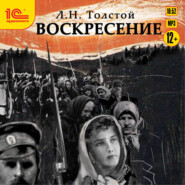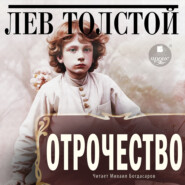По всем вопросам обращайтесь на: info@litportal.ru
(©) 2003-2024.
✖
Fables for Children, Stories for Children, Natural Science Stories, Popular Education, Decembrists, Moral Tales
Настройки чтения
Размер шрифта
Высота строк
Поля
"They are all gone. There are two only at the house."
So Zhilín said:
"Kostylín, come, let us try for the last time; I will give you a lift."
Kostylín would not even listen.
"No," he said, "I shall never get away from here. Where should I go, since I have no strength to turn around?"
"If so, good-bye! Do not think ill of me!"
He kissed Kostylín.
He took hold of the pole, told Dina to hold on to it, and climbed up. Two or three times he slipped down: the stocks were in his way. Kostylín held him up, and he managed to get on. Dina pulled him by the shirt with all her might, and laughed.
Zhilín took the pole, and said:
"Take it to where you found it, for if they see it, they will beat you."
She dragged the pole away, and Zhilín went down-hill. He crawled down an incline, took a sharp stone, and tried to break the lock of the stocks. But the lock was a strong one, and he could not break it. He heard some one running down the hill, leaping lightly. He thought it was Dina. Dina ran up, took a stone, and said:
"Let me do it!"
She knelt down and tried to break it; but her arms were as thin as rods, – there was no strength in them. She threw away the stone, and began to weep. Zhilín again worked on the lock, and Dina squatted near him, and held on to his shoulder. Zhilín looked around; on the left, beyond the mountain, he saw a red glow, – the moon was rising.
"Well," he thought, "before the moon is up I must cross the ravine and get to the forest."
He got up, threw away the stone, and, though in the stocks, started to go.
"Good-bye, Dina dear! I will remember you all my life."
Dina took hold of him; she groped all over him, trying to find a place to put the cakes. He took them from her.
"Thank you," he said, "you are a clever girl. Who will make dolls for you without me?" And he patted her on the head.
Dina began to cry. She covered her eyes with her hands, and ran up-hill like a kid. In the darkness he could hear the ornaments in the braid striking against her shoulders.
Zhilín made the sign of the cross, took the lock of his fetters in his hand, that it might not clank, and started down the road, dragging his feet along, and looking at the glow, where the moon was rising. He recognized the road. By the straight road it would be about eight versts. If he only could get to the woods before the moon was entirely out! He crossed a brook, – and it was getting light beyond the mountain. He walked through the ravine; he walked and looked, but the moon was not yet to be seen. It was getting brighter, and on one side of the ravine everything could be seen more and more clearly. The shadow was creeping down the mountain, up toward him.
Zhilín walked and kept in the shade. He hurried on, but the moon was coming out faster still; the tops of the trees on the right side were now in the light. As he came up to the woods, the moon came out entirely from behind the mountains, and it grew bright and white as in the daytime. All the leaves could be seen on the trees. The mountains were calm and bright; it was as though everything were dead. All that could be heard was the rippling of a brook below.
He reached the forest, – he came across no men. Zhilín found a dark spot in the woods and sat down to rest himself.
He rested, and ate a cake. He found a stone, and began once more to break down the lock. He bruised his hands, but did not break the lock. He got up, and walked on. He marched about a verst, but his strength gave out, – his feet hurt him so. He would make ten steps and then stop. "What is to be done?" he thought. "I will drag myself along until my strength gives out entirely. If I sit down, I shall not be able to get up. I cannot reach the fortress, so, when day breaks, I will lie down in the forest for the day, and at night I will move on."
He walked the whole night. He came across two Tartars only, but he heard them from afar, and so hid behind a tree.
The moon was beginning to pale, and Zhilín had not yet reached the edge of the forest.
"Well," he thought, "I will take another thirty steps, after which I will turn into the forest, where I will sit down."
He took the thirty steps, and there he saw that the forest came to an end. He went to the edge of it, and there it was quite light. Before him lay the steppe and the fortress, as in the palm of the hand, and to the left, close by at the foot of the mountain, fires were burning and going out, and the smoke was spreading, and men were near the camp-fires.
He took a sharp look at them: the guns were glistening, – those were Cossacks and soldiers.
Zhilín was happy. He collected his last strength and walked down-hill. And he thought: "God forfend that a Tartar rider should see me in the open! Though it is not far off, I should not get away."
No sooner had he thought so, when, behold, on a mound stood three Tartars, not more than 150 fathoms away. They saw him, and darted toward him. His heart just sank in him. He waved his arms and shouted as loud as he could:
"Brothers! Help, brothers!"
Our men heard him, and away flew the mounted Cossacks. They started toward him, to cut off the Tartars.
The Cossacks had far to go, but the Tartars were near. And Zhilín collected his last strength, took the stocks in his hand, and ran toward the Cossacks. He was beside himself, and he made the sign of the cross, and shouted:
"Brothers! Brothers! Brothers!"
There were about fifteen Cossacks.
The Tartars were frightened, and they stopped before they reached him. And Zhilín ran up to the Cossacks.
The Cossacks surrounded him, and asked:
"Who are you? Where do you come from?"
But Zhilín was beside himself, and he wept, and muttered:
"Brothers! Brothers!"
The soldiers ran out, and surrounded Zhilín: one gave him bread, another gruel, a third vódka; one covered him with a cloak, another broke off the lock.
The officers heard of it, and took him to the fortress. The soldiers were happy, and his companions came to see him.
Zhilín told them what had happened, and said:
"So I have been home, and got married! No, evidently that is not my fate."
And he remained in the service in the Caucasus. Not till a month later was Kostylín ransomed for five thousand. He was brought back more dead than alive.
ERMÁK
In the reign of Iván Vasílevich the Terrible there were the rich merchants, the Stroganóvs, and they lived in Perm, on the river Káma. They heard that along the river Káma, in a circle of 140 versts, there was good land: the soil had not been ploughed for centuries, the forests had not been cut down for centuries. In the forests were many wild animals, and along the river fish lakes, and no one was living on that land, but only Tartars passed through it.
The Stroganóvs wrote a letter to the Tsar:
"Give us this land, and we will ourselves build towns there and gather people and settle them there, and will not allow the Tartars to pass through it."
The Tsar agreed to it, and gave them the land. The Stroganóvs sent out clerks to gather people. And there came to them a large number of roving people. Whoever came received from the Stroganóvs land, forest, and cattle, and no tenant pay was collected. All they had to do was to live and, in case of need, to go out in mass to fight the Tartars. Thus the land was settled by the Russian people.

















